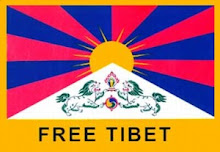 «Erkin Koray (born June 24, 1941, in Beykoz, Istanbul) has been in the Turkish rock music scene since the late 1950s or early 1960s. He is widely acclaimed as being the first person to ever play rock and roll in Turkey; in 1957, he and his band gained fame by playing covers of Elvis Presley and Fats Domino. He was also one of the first Turkish musicians to embrace the electric guitar and modern amplification.
«Erkin Koray (born June 24, 1941, in Beykoz, Istanbul) has been in the Turkish rock music scene since the late 1950s or early 1960s. He is widely acclaimed as being the first person to ever play rock and roll in Turkey; in 1957, he and his band gained fame by playing covers of Elvis Presley and Fats Domino. He was also one of the first Turkish musicians to embrace the electric guitar and modern amplification. By the late 1960s, he was already a major figure in Turkish psychedelic music and Anatolian Rock, beginning with his first psychedelic single Anma Arkadaş in 1967. Koray followed this with a number of singles, both by himself and in collaboration with others, that established him as a force to be reckoned with on the Turkish rock scene. Koray became a controversial figure in Turkey during the 1960s and 1970s; he was actually assaulted in Istanbul, and on one occasion stabbed, for having long hair.
In the early 1970s, he formed the group Ter with the former members of Grup Bunalim, a power trio styled group. […] The music of Ter was influenced by glam rock and psychedelia, and featured extended guitar solos and progressive arrangements – something that his record company, Istanbul Records, was not prepared to accept.
The Turkish public remained interested in Koray's solo work nonetheless, and in 1973 his first album, Erkin Koray, was released. […] The album consists of a collection of singles from 1967 to 1973. Koray left Istanbul Records after its release, signing to Doglan Records. […] 1974 saw the release of his groundbreaking album, Elektronik Türküler (“Electronic Ballads”). Finally given the freedom to record an album instead of being limited to 45 rpm singles, Koray and his band created an album that reflected both his Turkish roots and his love of psychedelic and progressive rock. The album's popularity continues to the present day, with several legitimate and non-legitimate releases on both album and CD. Elektronik Türküler is widely considered to be Koray's masterpiece by many critics, and many of his subsequent releases followed in this vein, with progressive and psychedelic influences balanced by Turkish folk forms. […]
Benden Sana (From Me to You), released in 1982, saw Erkin Koray experimenting with Indian music. It was recorded in Germany and Istanbul, with the help of Turkish and Indian musicians (with Erkin playing all melody instruments, along with bass), and included remakes of two of his earlier hits (he would continue this remake tradition in the years to come).
Koray continues to record and perform in Turkey to this day, and in Turkish music circles is often referred to as Erkin Baba ("Erkin the Father") for his pioneering influence on Turkish popular music. Koray is also the inventor of the electric bağlama, a traditional Turkish musical instrument related to the lute, and its unique sound can be heard on many of his albums.» (Wikipedia & Progarchives)
Link in comments
 «Bristol based and formed in 1990 by Shaun Hyder (Sitar etc.) and Rehan Matthew Hyder (Slide Guitar), Saddar Bazaar (Central Market) were soon joined by John Sage on Drums and supported various bands in the local area such as The Seers, Praise Space Electric and the Bevis Frond. They also played at the well known Ashton Court Community Festival in Bristol. By 1992 John had left the band and had been replaced by David Spencer, whilst Tainenska Royal came in on flute and keyboards. It was this line-up that recorded “Night Descent” for the indie charting Fun With Mushrooms album on Delerium. The bands appearance on this album resulted in a pile of mail from punters, at Delerium HQ, requesting a whole album of material by the band. It also resulted in a session for American doom metal band Solitude Aeturnus! (Saddar Bazaar play on the track “The 9th Day” on the band’s 1994 album Through the Darkest Hour on Music For Nations). Delerium decided to fund an album and the finished article featured new keyboard player Terry Banx and was produced by Bob Pierce (an ex-member of 60s UK psych band The Mirror). The Conference of The Birds is one of Delerium’s strangest releases to date. A perfect acoustic Eastern chill-out experience that harkens back to groups such as The Third Ear Band and The Ceyleib People, with its atonal, psychedelic simplicity, whilst appealing to the ambient trance textures of todays head music scene…» (Last.fm)
«Bristol based and formed in 1990 by Shaun Hyder (Sitar etc.) and Rehan Matthew Hyder (Slide Guitar), Saddar Bazaar (Central Market) were soon joined by John Sage on Drums and supported various bands in the local area such as The Seers, Praise Space Electric and the Bevis Frond. They also played at the well known Ashton Court Community Festival in Bristol. By 1992 John had left the band and had been replaced by David Spencer, whilst Tainenska Royal came in on flute and keyboards. It was this line-up that recorded “Night Descent” for the indie charting Fun With Mushrooms album on Delerium. The bands appearance on this album resulted in a pile of mail from punters, at Delerium HQ, requesting a whole album of material by the band. It also resulted in a session for American doom metal band Solitude Aeturnus! (Saddar Bazaar play on the track “The 9th Day” on the band’s 1994 album Through the Darkest Hour on Music For Nations). Delerium decided to fund an album and the finished article featured new keyboard player Terry Banx and was produced by Bob Pierce (an ex-member of 60s UK psych band The Mirror). The Conference of The Birds is one of Delerium’s strangest releases to date. A perfect acoustic Eastern chill-out experience that harkens back to groups such as The Third Ear Band and The Ceyleib People, with its atonal, psychedelic simplicity, whilst appealing to the ambient trance textures of todays head music scene…» (Last.fm)























